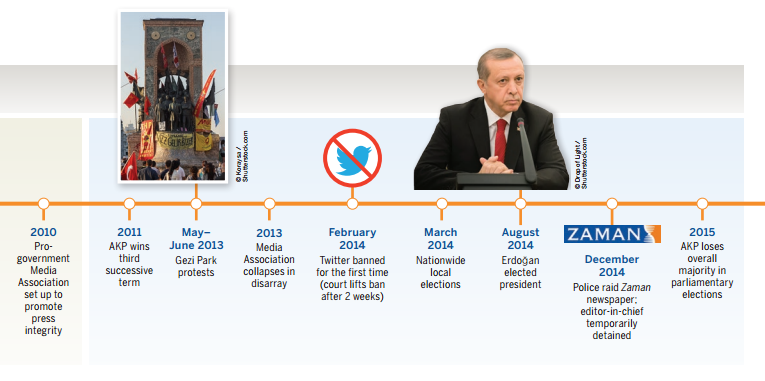How does an institution like media, entrusted to safeguard the rights and interest of ordinary citizens, betray that obligation? Capture has become a growing concern in the media field globally–yet another example of the many challenges facing independent news media.
In a captured media, the government hijacks and manipulates media outlets, using the carrot of the non-media commercial interests of their owners. “Capture refers to institutions which have drifted from their intention of serving the public good into serving the very interests they are trying to monitor” says Andrew Finkel, author of CIMA’s most recent report Captured News Media: The Case of Turkey.
Capture refers to an environment where media outlets provide favorable coverage of the government and political leaders in the country because the government in return will reward them with advertising and other financial benefits. “Turkey provides an example of extreme capture where the state controls media almost completely,” Finkel says.
Finkel stresses that “media capture left unchallenged opens the door to high levels of corruption.” I interviewed Andrew Finkel, who elaborated on his experience as a journalist in Turkey over the last 30 years, working in a captured media environment. These experiences, he says, served as the “bedrock” of his report.
Normally, even a corrupted media relies on retaining sufficient influence to peddle. Yet in recent years, Finkel argues, much of the Turkish media has become indistinguishable from propaganda in as much as it “gives no or scant market value to integrity or reputation.”
Captured Media in Turkey
In his report, Finkel gives a personal perspective on major changes within media ownership in decades that have seen the advent of private television stations, as well as, the rise of the religious conservative Justice and Development Party (AKP).
The transformation he highlights is the shift from a media trying to leverage its influence in other economic spheres to a media in which ownership is a form of tax on those doing business with the government. Whereas media ownership was once an entrée into banking and state privatizations, it is now a burden on, for example, large contractors who would dispose of their press assets if they could.
Finding a Solution to Captured Media
This represents a huge challenge to those who promote media integrity as a first principle of democratic governance. As capture continues to grow worldwide, independent media will face increasing challenges in disseminating news reliably and accurately.
Finkel offers strategies to combat the problem of media capture. In the interview, he suggested working with opportunities as they present themselves. In his report, Finkel argues that those supporting independent media “should not just criticize capture but encourage ‘escape,” i.e., support alternative forums where public debates find refuge.
Check out Andrew Finkel’s report on Media Capture in Turkey to learn more.
CIMA will be hosting an event focusing on Turkey as a case study of media capture on October 27, 2015. RSVP today!


Comments (0)
Comments are closed for this post.